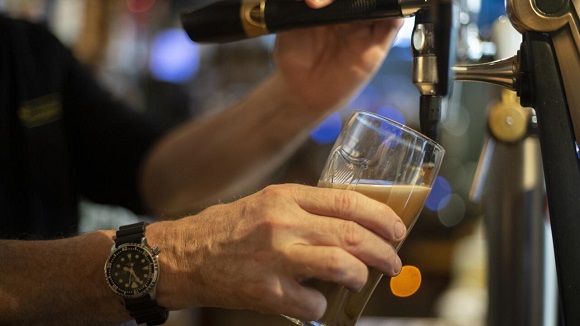The Surgeon General, who is the leading spokesperson on matters of public health in the federal government, said that alcohol was the third most common preventable cause of cancer after tobacco and obesity.
"The direct link between alcohol consumption and cancer risk is well-established for at least seven types of cancer ...regardless of the type of alcohol (e.g., beer, wine, and spirits) that is consumed," Mr Murthy said in a statement.
This includes increased risk of cancer of the breast (in women), throat, liver, oesophagus, mouth, larynx and colon.
The new report recommends health care providers should encourage alcohol screening and treatment referrals as needed, and efforts to increase general awareness should be expanded.
The warning labels are currently required to state that women who are pregnant should not drink alcohol due to birth defect risks. It also must state that "consumption of alcoholic beverages impairs your ability to drive a car or operate machinery, and may cause health problems".
Over the last two decades, countries have increasingly introduced warning labels to inform consumers about the health risks of alcohol.
The World Health Organization's Global Status Report for Alcohol and Health in 2018, cited in Mr Murthy's report, said 47 member states mandated health and safety warnings on alcohol, up from 31 in 2014.
Ireland is the first country in the world to mandate a warning linking any level of alcohol consumption to cancer. From 2026, it will be a legal requirement for all bottles of alcohol in the Republic of Ireland to carry a label.
South Korea also requires cancer-specific warnings on alcohol.
In the US, only Congress can amend the new warning labels recommended by Mr Murthy, and it's not clear that the incoming Trump administration would support the change.
Many countries have also revised the recommended limits for consumption after new studies pointed that no amount of alcohol is safe to drink.
Canada revised its recommendation from nearly two drinks per day to two per week last year.
The US recommends no more than two drinks a day for men and one for women, while the UK suggests no more than 14 "units" of alcohol - around six glasses of wine, or pints of beer - per week.
Share prices of US-listed alcoholic beverage companies - including Diageo, the world's biggest spirits manufacturer - fell by up to 4% following the announcement.
BBC





